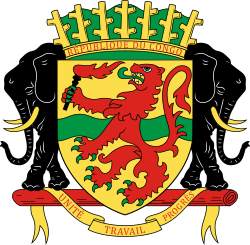 |
|---|
Parliamentary elections were held in the Republic of the Congo on 2 May 1993, with a second round in several constituencies on 6 June. The result was a victory for the Presidential Tendency coalition, which won 65 of the 125 seats in the National Assembly. [1] Former President Joachim Yhombi-Opango was appointed as Prime Minister.